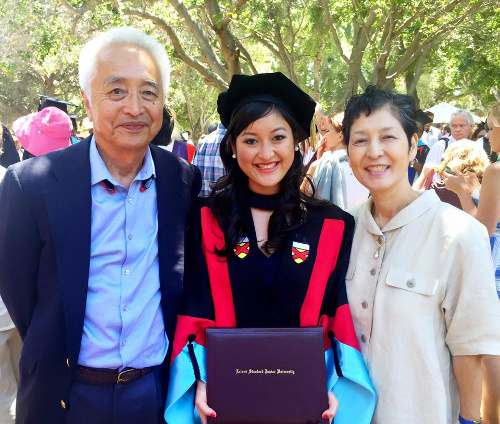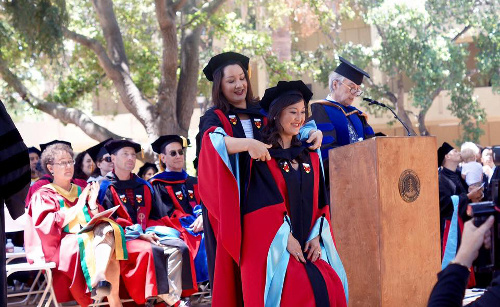Mana Nakagawa
Reflection from Mana Nakagawa (ELP 2014)

When I first joined the 2014 class of the TOMODACHI Emerging Leaders Program (ELP), I was struck by the diversity of expertise that my classmates brought to the table. From non-profits to law, to the restaurant industry and beyond, I was intrigued by the unique stories that each of my classmates embodied. But more than that, I was inspired by the common heritage, values and passions we shared towards improving U.S.-Japan relations through our various endeavors.
When I first met my ELP class, I was still a graduate student, striving to find my way and identity as a Japanese American academic. A few weeks ago, I finally completed my Ph.D. in International Comparative Education at Stanford University.
My dissertation takes on a historical and international analysis of women faculty in elite universities around the world. While important progress has been made, women still have a very long way to go in obtaining equal status inside academic walls, especially in the higher ranks of faculty and in the STEM fields. Meanwhile, women students have surpassed men in obtaining college degrees in the vast majority of countries. This means that while women are increasingly making up the consumer base of higher education as students, women remain underrepresented as the creators and disseminators of knowledge as faculty. Japan has a particularly meager representation of women faculty inside its elite universities. While the United States looks better, most countries are not even close to reaching 50 percent women.
Why did I choose such a depressing topic? While it’s true that these trends are not encouraging, I see great opportunity in these findings, especially in Japan and the United States. While comparing international education systems has often turned into global competitions and rankings, there is tremendous opportunity to share best practices when countries and societies collaborate to face a common problem. At the USJC Annual Conference in Hawaii last October, I was heartened by the Diversity and Inclusion panel that brought together Japanese and American perspectives on increasing women in the workplace. Japanese and U.S. companies are pioneering the field of advancing gender equality in the workplace, and tackling challenges of work-life balance across industries. Only through learning new perspectives and connecting with worlds outside of our own can we strive towards new forms of social progress.

With graduate school behind me, I am now the Women’s Diversity Program Manager at Facebook. Filling a new role in the company, I am tasked with increasing the engagement, retention and promotion of women in technology across the company’s global offices, while striving to make broader impact in diversifying the tech industry at large. I am excited to work at a company whose mission is to give people the power to share and make the world more open and connected, a mission that so clearly aligns with USJC.
On the same Northern California soil that my ancestors were detained in internment camps less than 80 years ago, I am honored to be the first woman in my family to attend college and graduate school, and to be working in a role focused on making our society a more equal place. Of course, the entire USJC community is doing invaluable work in diversity and inclusion, simply by being Japanese American pioneers in their respective industries. I am grateful to both my ELP classmates for continuing to inspire me, and to USJC for embracing me in this important community that keeps me grounded and committed to doing good as a Japanese American.